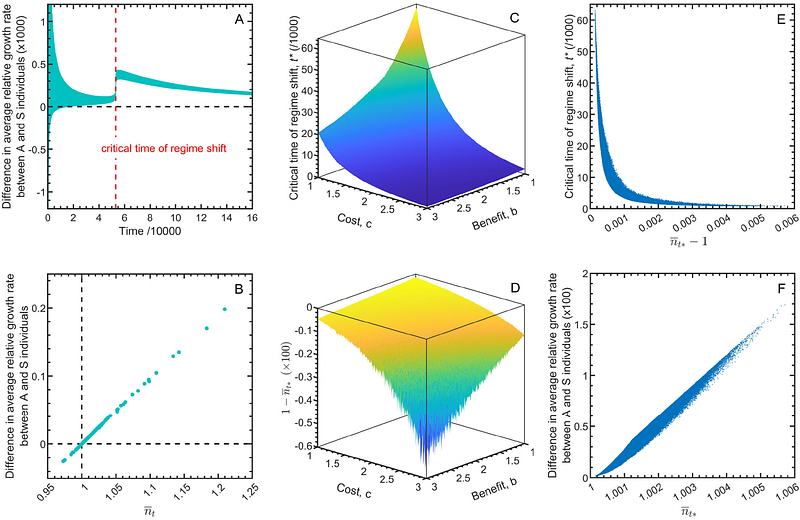Fluctuating selection breaks Hamilton's rule for the evolution of altruism

Fluctuating selection breaks Hamilton's rule for the evolution of altruism
Zhang, F.; Hastings, A.; Hui, C.
AbstractAltruistic behaviours, those that benefit recipients at a cost to donors, have long posed a puzzle in evolutionary biology and sociobiology. Established theories, such as kin selection, group selection, and reciprocal altruism, explain altruism via assortment mechanisms that depend on preferential interactions among altruists to ensure a higher average payoff than selfish individuals. Hamilton\'s rule defines the minimum level of such assortative interactions required for altruism to evolve. However, in populations with limited growth, increased competition can erode the selective advantage of altruism and thus require more stringent Hamilton\'s rule. Here, we propose a fundamentally different mechanism: fluctuating selection driven by increased competition due to added social benefits of altruism in populations with limited carrying capacity. Under fluctuating selection, altruists can invade a selfish population without the need of assortment mechanisms and outcompete selfish individuals through a transient phase, even when the cost of altruism exceeds its direct benefit. Classical invasion analysis, which compares the long-term growth rates of rare altruistic mutants and resident selfish individuals, fails in our model because both strategies exhibit zero long-term growth. Instead, we show that altruism can invade when its short-term, time-averaging growth rate exceeds that of selfish individuals, which necessitates a prolonged transient phase. This invasion is enabled by payoff-regulated density dependence, which captures the dynamic interplay between payoff and density on fitness under fluctuating selection. Our findings challenge the necessity of Hamilton\'s rule and show that genuine altruism, with less average payoff than selfish individuals, even extremely self-sacrificial, can emerge under natural selection. This suggests that altruism may arise not from preferential interaction, but as an adaptive response to population fluctuations in constrained environments, providing an alternative paradigm for understanding the evolution of altruistic behaviour.